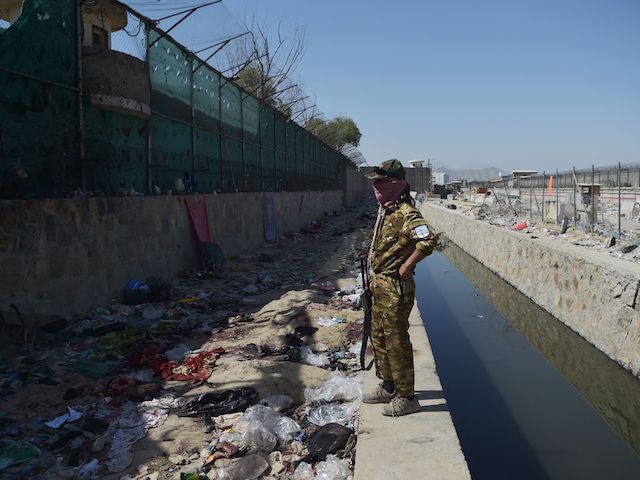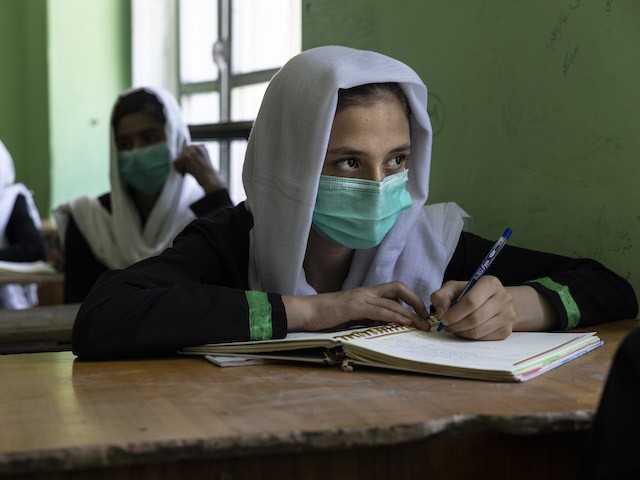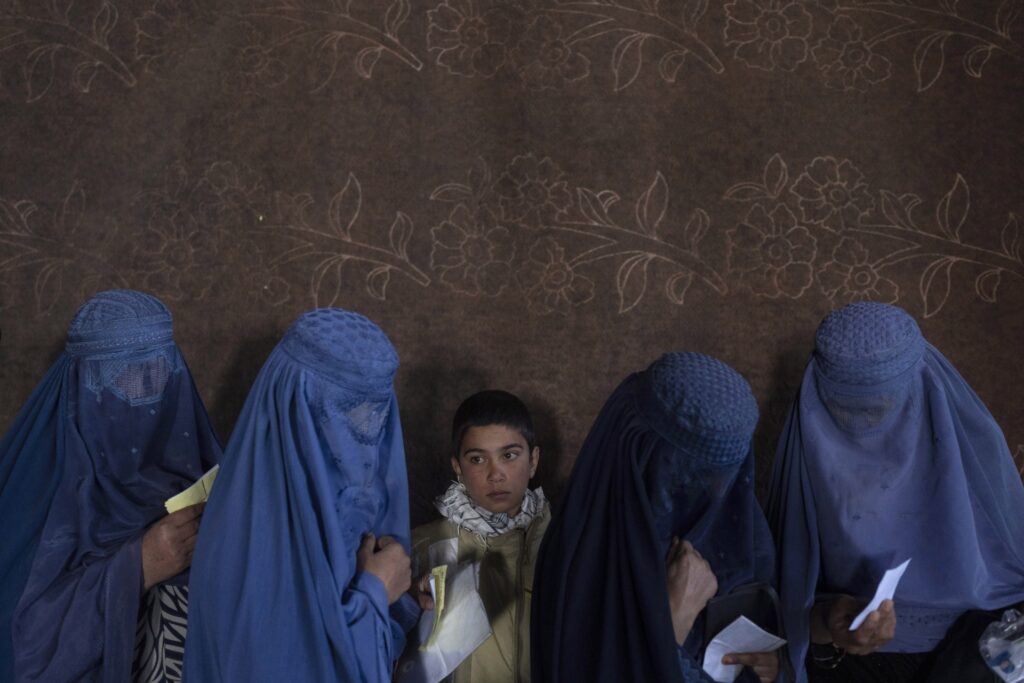
When the Taliban jihadist organization returned to power in Afghanistan a year ago on Monday, its spokesmen promised one thing above all: the new and improved Taliban regime would be “inclusive.”
Taliban representatives who would go on to powerful offices in what is now the “Islamic Emirate of Afghanistan” could not stop using the word. Their ministerial cabinet would be “inclusive.” Their institutions would be “inclusive.” Their diplomatic stances on the larger world stage would reflect the alleged newfound “inclusivity” the Taliban learned from warring with America for 20 years.
Taliban jihadists never specified exactly how they defined the word, but much of the world — from the Chinese Foreign Ministry to the United Nations to Secretary of State Antony Blinken — publicly expressed hope that the new language expressed optimism and hope that two decades of war had somehow softened one of the world’s most extreme terrorist groups.
The Taliban Sunni terrorist organization took over Afghanistan entirely on August 15, 2021, after leftist President Joe Biden violated an agreement between Washington and the group that would have seen American troops leave the country by May 1, 2021. Despite demanding praise from the American people for ending the Afghan War, Biden extended it to September 2021, then shortened the deadline to August as it became clear the government of then-President Ashraf Ghani would not hold on to power beyond that month. The Taliban began a sweeping campaign to overthrow the government on the grounds that Biden had nullified the deal that kept them from trying to overthrow the government.
Taliban terrorists continue to insist to this day that they did not seize power but, rather, had to do so when Ghani abruptly fled the capital on August 15.

A Taliban fighter stands guard at the site of the August 26 twin suicide bombs, which killed scores of people including 13 US troops, at Kabul airport on August 27, 2021. (Photo by WAKIL KOHSAR/AFP via Getty Images)
“The effort was to enter the city of Kabul through dialogue and understanding, but the fact that the head of the previous regime and the officials of the Security fled, Kabul faced a power vacuum,” the Taliban’s Bakhtar News Agency proclaimed in an analysis on Sunday, citing unspecified Taliban leaders. “Then the popular leaders and residents of Kabul asked us to enter the city of Kabul and provide security.”
Arriving at its one-year anniversary in power, the Taliban has proven to be anything but “inclusive,” with the exception of making plenty of room for Sunni jihadist terrorist groups like al-Qaeda and the affiliated Haqqani Network in its halls of power. Taliban terrorists have in practice mostly outlawed journalism, banned girls and women from getting an education, done little to curb groups like the Islamic State, harbored high-profile al-Qaeda leaders, and aligned themselves internationally with some of the world’s most brutal repressive states, such as China and Russia.
Its Ministry for the Promotion of Virtue and Prevention of Vice, which replaced the former Afghan Women’s Ministry, regularly threatens and micromanages civilian lives, using checkpoints to inspect people and berate them, or worse, if they do not maintain sufficiently Islamic beards or associate with women who do not wear a head covering. Burqa sales are booming, as are those for Quranic car decals, used to please the oppressors into looking away.
The Taliban of today is a clear continuation of the regime that controlled Afghanistan from 1996 until 2001, ending with the September 11 attacks, and not in any meaningful way an “inclusive” break from that tradition.
This is not what Taliban senior spokesman Zabihullah Mujahid promised reporters during his first official press conference on August 17, two days after taking over the country.
“Our countrymen and women who have been waiting, I would like to assure that after consultations that are going to be completed very soon, we will be witnessing the formation of a strong Islamic and inclusive government, Inshallah,” Mujahid vowed. “We will do our most to make sure that everybody is included in the country, even those people against us in the past, so we are going to wait until those announcements are made.”
“Nobody should be left out, or anybody with interests to serve the nation … So the future government will be inclusive,” he insisted.
The “inclusive” line was not a new tactic – current Taliban United Nations representative Suhail Shaheen had claimed the group “want[ed] an inclusive government because that will guarantee a stable government in the country” in December 2019. This time, with little sign that the U.S.-backed “Islamic Republic” of Afghanistan would survive, the Taliban found welcoming ears for their assurances.
“We have ongoing discussions, we are quite optimistic based on those discussions,” Mustapha Ben Messaoud, UNICEF chief of Afghanistan operations, said shortly after the conquest, referring to the possibility that the Taliban would allow girls and women to continue going to school.

Behishta, 13, takes notes during her 7th grade class at the Zarghoona high school on July 24 2021, in Kabul, Afghanistan. The Zarghoona girls’ high school is one of the largest in Kabul with 8,500 female students attending classes. (Photo by Paula Bronstein /Getty Images)
“It may well be a Taliban that is more reasonable,” British Chief of the Defense Staff Nick Carter said in an interview with the BBC at the time. “It’s less repressive. And indeed, if you look at the way it is governing Kabul at the moment, there are some indications that it is more reasonable.”
“As we’ve said and as countries around the world have said, there is an expectation that any government that emerges now will have some real inclusivity,” Secretary of State Antony Blinken said in September, “and that it will have non-Talibs in it, who are representative of different communities and different interests in Afghanistan.”
Blinken lamented that same month that the Taliban appeared to have only given government leadership positions to Taliban terrorists or members of its affiliates, like the Haqqani Network. He nonetheless appeared to maintain hope at the time: “We understand that the Taliban has presented this as a caretaker cabinet. We will judge it and them by its actions.”
Taliban leaders waited for some signs of support from the international community, most prominently from China and Iran, that it would receive recognition as the functional government of Afghanistan before formally beginning to crack down on the expansion of human rights that had occurred during the 20 years of U.S.-backed rule. No nation formally recognizes the Taliban as a government, but Iran and China accepted it as an “interim” government in October 2021. After that, the Taliban abolished Afghanistan’s Human Rights Commission and its Women’s Ministry, creating the Ministry for the Promotion of Virtue and giving it broad powers to enforce sharia, or the Islamic law.
The Taliban has used its enforcement arm to establish checkpoints around Kabul and other major cities to berate residents into using burqas, keeping long beards, and ensuring that men are not traveling with unauthorized women. Taliban enforcers also established bizarre rules such as segregating public parks such that single men and single women cannot visit them on the same days, giving men the weekends.
The Taliban’s “Education Ministry” banned all girls and women from pursuing education above the sixth grade and announced that women should leave their homes as little as possible in May. An edict passed that month by Supreme Leader Mullah Haibutullah Akhundzada mandated the hijab, a headscarf that typically covers the hair, but insisted that the burqa, which covers the entirety of the wearer’s body, was ideal. Taliban spokesmen tried to spin this development as “inclusive” because Akhundzada did not mandate the burqa by use of force.
“The first thing they did was to isolate women from society,” Khatera Hesar, an Afghan women’s rights activist, lamented to the country’s Tolo News agency on Sunday. Tolo News was among the first victims of the new-old regime, facing regular Taliban terrorist visits to ensure its coverage did not offend the terrorists by, among other things, featuring women.
Women, arguably the most persecuted demographic under the Taliban, took the streets of Kabul to protest yet again this weekend, resulting in Taliban jihadists opening fire on the protesters, according to Tolo News. The agency’s reporter on the scene was arrested and held in Taliban detention for six hours.

Afghan women wait to receive cash at a money distribution point organized by the World Food Program, in Kabul, Afghanistan, on Nov. 20, 2021. The lives of Afghan women and girls are being destroyed by the Taliban’s crackdown on their human rights, said Amnesty International in a new report Wednesday, July 27, 2022. (AP Photo/Petros Giannakouris, File)
The Taliban has also done little to distance itself from other terrorist groups. The Haqqani Network’s top members have taken over pivotal Afghan government ministries, most prominently “interior minister” Sirajuddin Haqqani. Haqqani, multiple reports claimed this month, was reportedly housing Ayman al-Zawahiri, the head of al-Qaeda, in one of his homes when a U.S. drone strike eliminated him in Kabul in early August. Mujahid, the spokesman, insisted in a statement following the drone strike that Taliban leaders were not aware that Zawahiri was living in the most lavish neighborhood of Kabul and condemned America for violating the Taliban’s alleged “sovereignty.”
Haqqani’s public statements as interior minister highlight the sharp pivot away from “inclusivity” the Taliban has taken, at least rhetorically, in the past year.
“Don’t sit on the hopes of others, there are some talk saying ‘accept this and we will accept that with you,’ if we had accepted these with you, we would have not fought you for the last 20 years. We accept but based on the Islamic and national principles,” Haqqani said last week on a visit to Helmand province, a Taliban stronghold.
The Taliban announced that August 15 would be a public holiday in Afghanistan “to mark the first anniversary of the victory of the Afghan jihad against the American and its allies’ occupation.”




